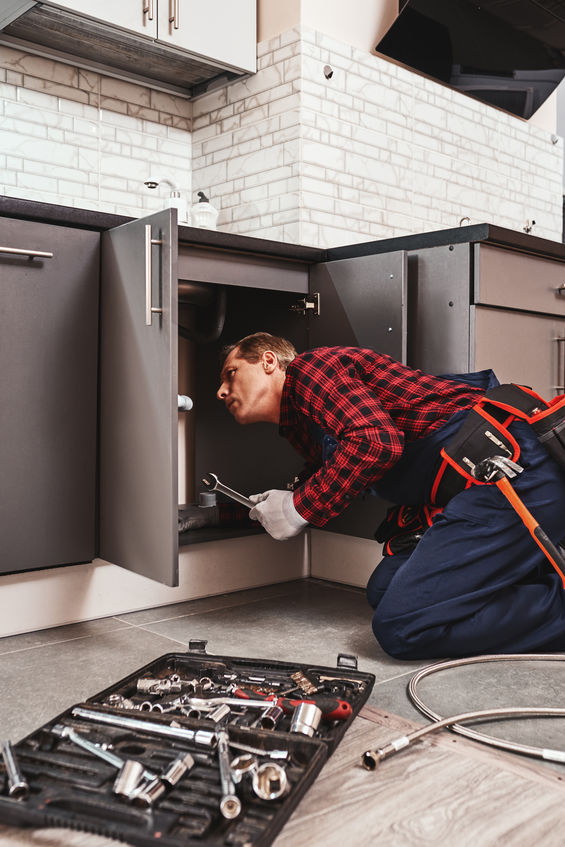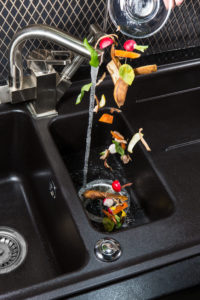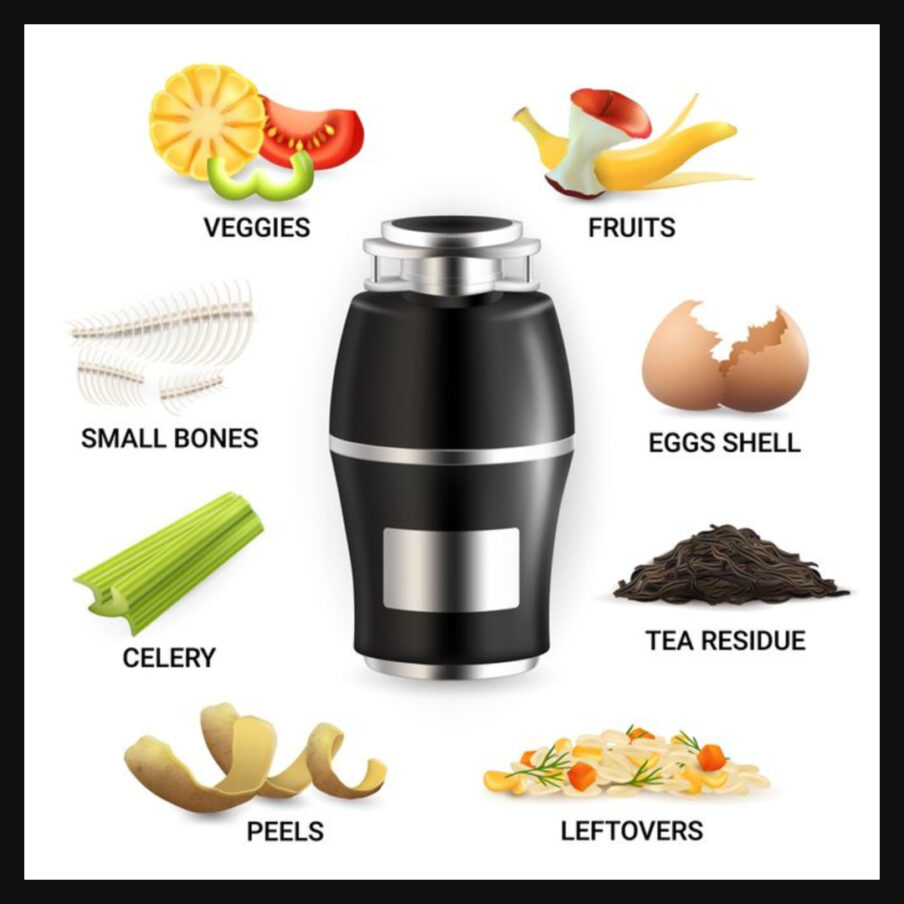
A garbage disposal is a convenient tool for discarding food waste during your kitchen cleaning routine. However garbage disposals can accumulate residue and bacteria as discarded food and organic matter decompose. This can result in odors.
How Do Garbage Disposals Work?
Understanding how your garbage disposal works will help you use it properly as well as extend the service life of the unit. The design and quality of your disposal unit will determine what types of food waste are appropriate for in-sink disposal – and which are not. Certain types of foods can cause deposits to accumulate and eventually clog your disposal. Examples of foods not compatible with sink garbage disposals include flour, sugar, and fibrous vegetables like celery, corn silk or husks, and sweet potatoes. Other hard and rigid foods like corn cobs create resistance within the grinding chamber and can burn out your disposal motor. Furthermore, understanding what you can safely put into your disposal can also be help ensure your sewer drain line continues to flow freely.
Regardless of which type of food scraps you discard through your garbage disposal, residue can accumulate inside the disposal unit and become smelly. Some of the foods that cause the worst odors are meats and vegetables seasoned with garlic and onions. As these foods decay, they emit gases that can produce putrid odors.
Garbage Disposal Care & Maintenance
It’s a good idea to include a cleaning regimen for your garbage disposal whenever deep clean your kitchen. This will save you money and headaches in the long run. We’ve put together a few helpful tips for eliminating garbage disposal odors. How to maintain your garbage disposal and eliminate odors:

1. This method is simple and helps remove food waste deposits inside your garbage disposal: Plug your sink, fill it with hot water and dish soap, and then unplug the sink and run the disposal until the water has fully drained.
2. Use ice cubes and kosher salt to clean your garbage disposal. Run the disposal while inserting salt along with the melting shards of ice. This will safely dislodge food deposits that for inside your disposal unit – without chemicals.
3. Baking soda and vinegar. Take a half cup of baking soda and sprinkle it into the drain opening. Then pour half cup of vinegar into the drain opening and let the mixture fizz for 10 minutes. Run hot water into the drain while running your garbage disposal for about 45 seconds. The vinegar in the mixture will kill the odor-causing bacteria, but be careful not to use this method too often as the acidity of vinegar can corrode the rubber parts of your unit.
• Use lemon peel to infuse your garbage disposal with a pleasant scent. Remove the peel from one lemon and cut it into half inch strips. Place the strips into the drain opening and activate the disposal while running cold water. You will get an immediate burst of citrus fragrance. Please note, this method will not clean or dislodge food waste deposits from your disposal.
• Use bleach to kill bacteria and disinfect your disposal. Pour a mixture of one tablespoon of bleach and one cup of hot water in a continuous stream down the drain opening while running cold water for about 60 seconds. This should not only kill any remaining bacteria but also help to remove any grime and residue. Bleach can also corrode metal, so be sure to rinse well with water. Rinsing with bleach will also help keep your sewer drain lines clear, enhancing the flow of wastewater to your sewer lateral.
If you’ve tried these methods and you find that your drain opening is still emitting foul odors, you may be experiencing a more complex issue. Resistant odors could be a sign of a sewer backup. In this case, it’s a good idea to schedule a sewer camera inspection to investigate and ensure your sewer line is free of clogs and flowing freely.
Do you have a recurring problem with drain odor? If so, contact us at Pipe Spy to schedule a home sewer system checkup. We can save you time and money by catching any problems early!

